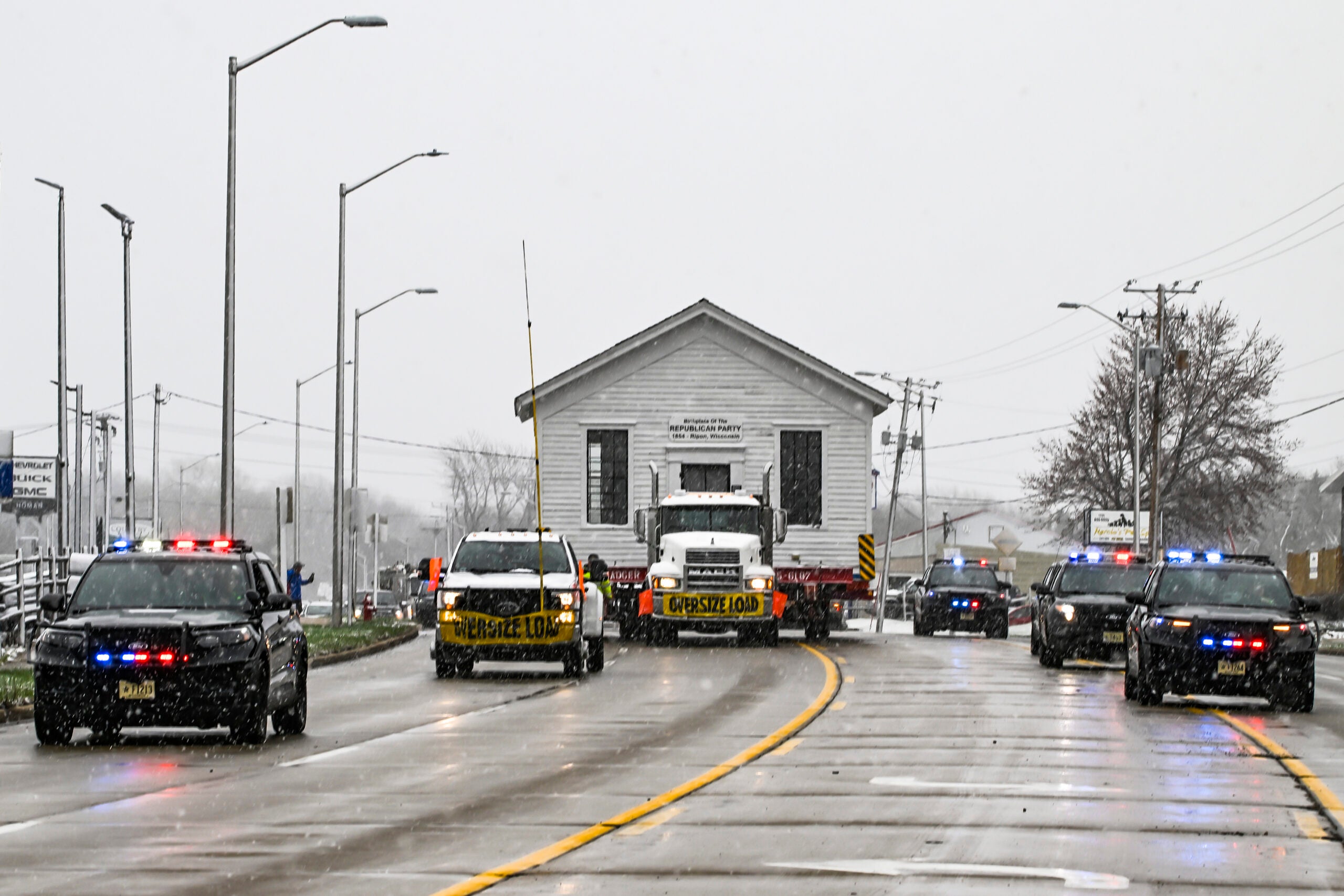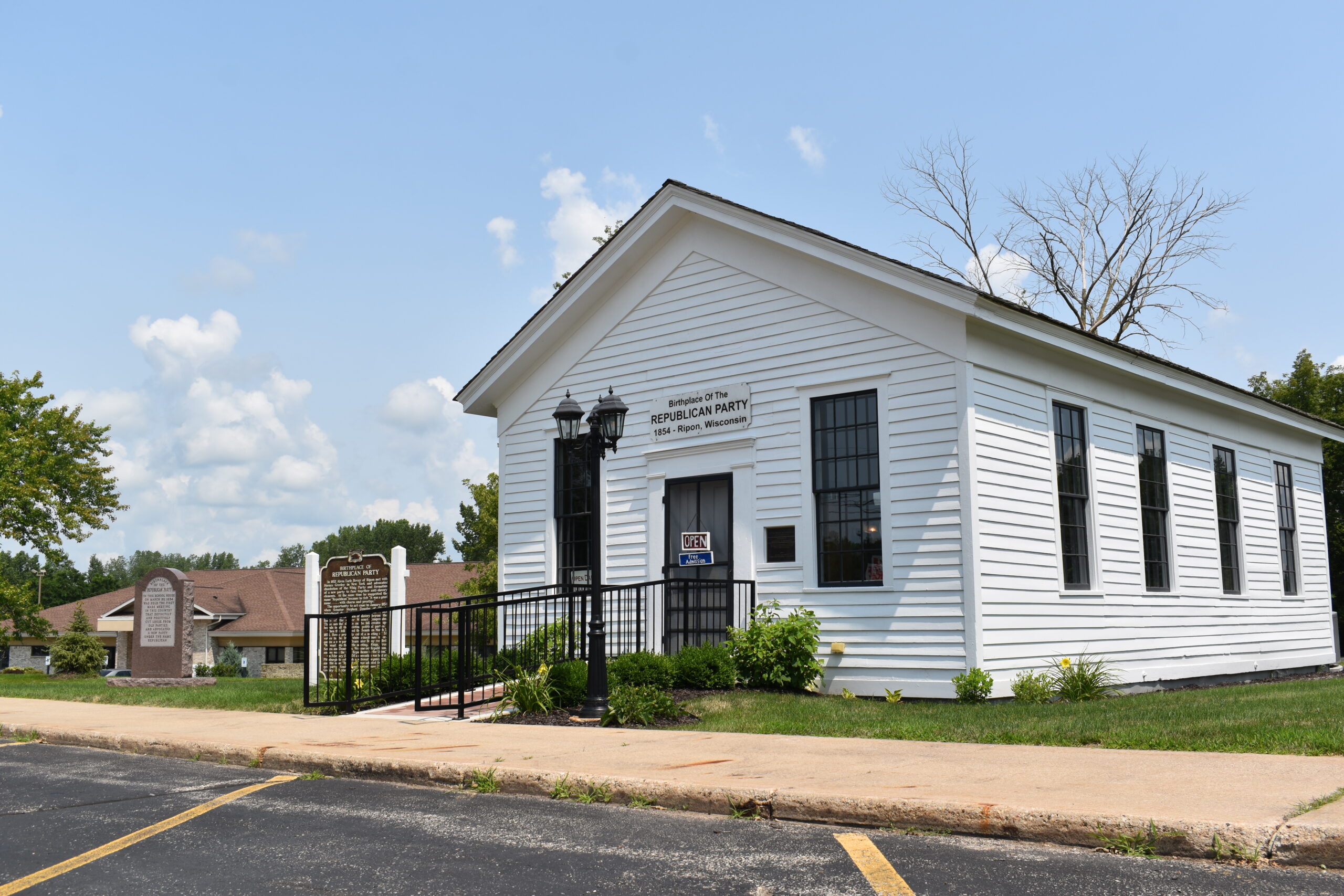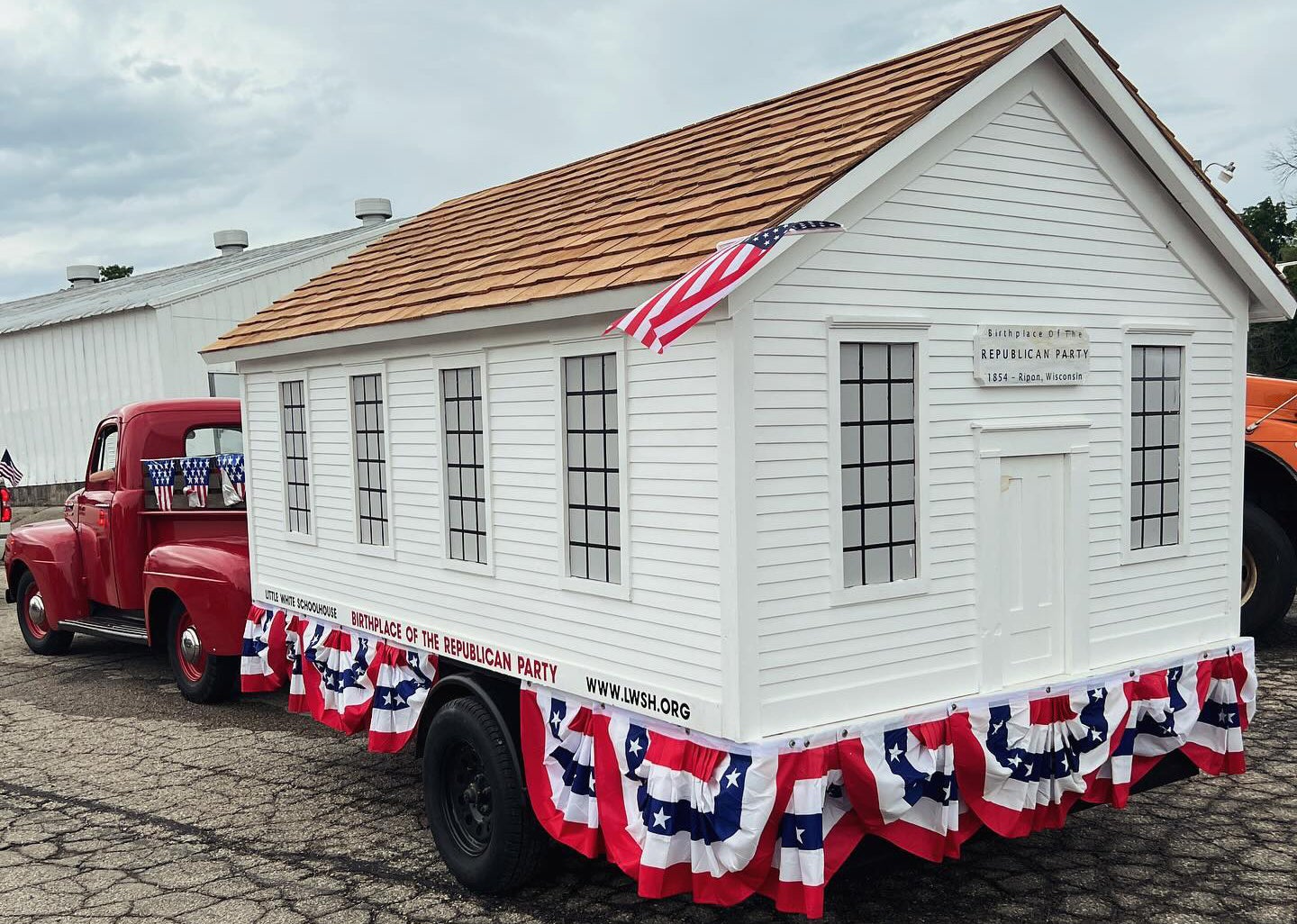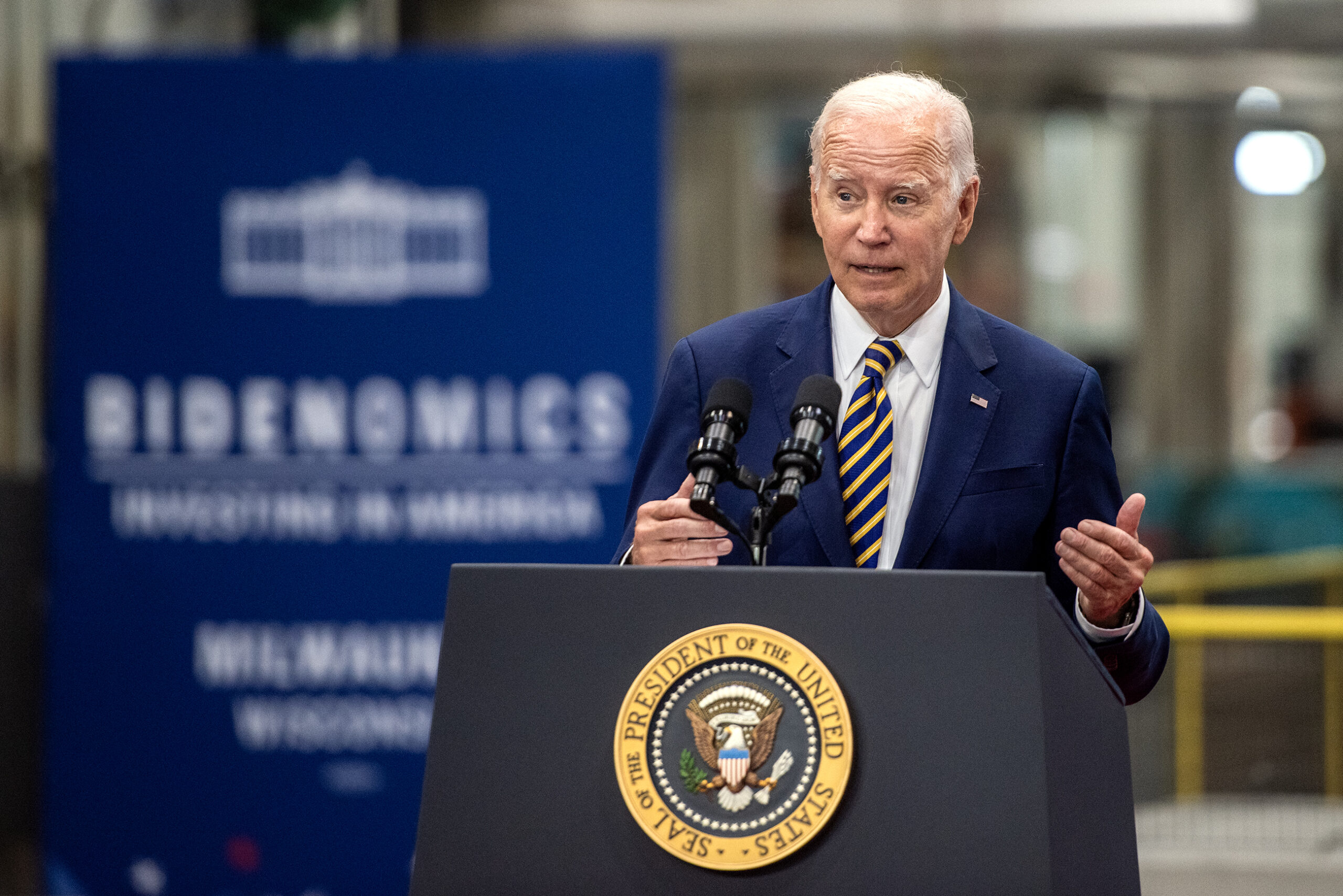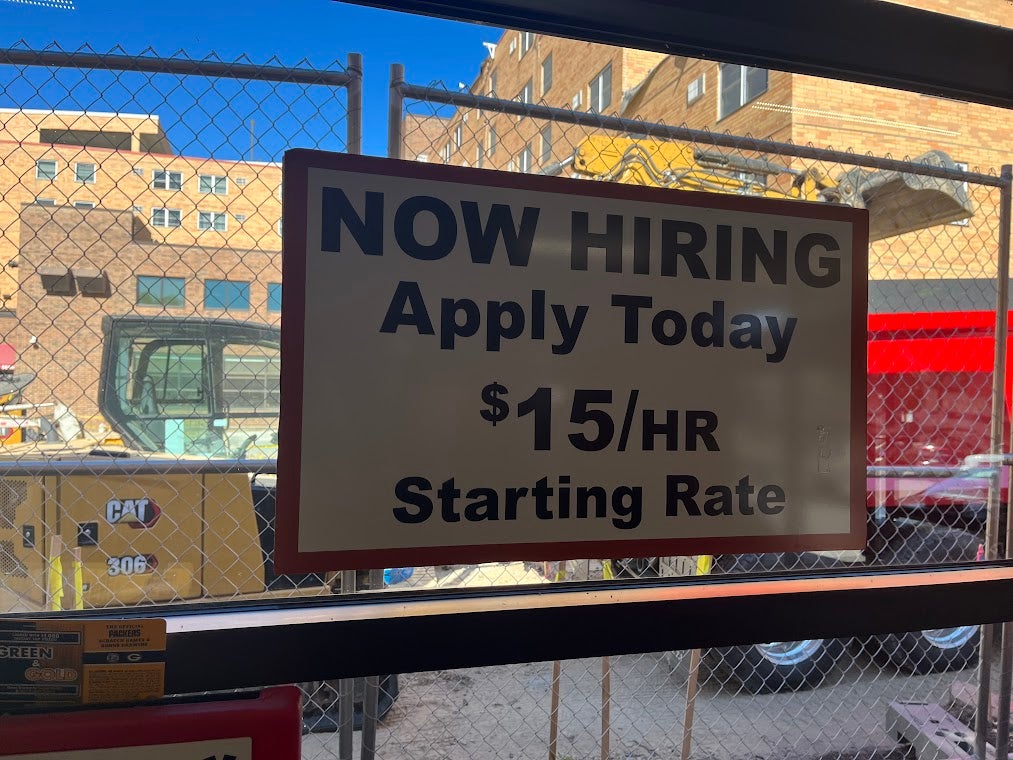The Birthplace of the Republican Party has a new home that local tourism officials hope will make it a better destination for visitors during the 2024 Republican National Convention in Milwaukee.
But the move came at a cost, with the building — at least for now — losing its status as a national historic landmark, and leaving some Republican Party leaders angry about the move.
The Little White Schoolhouse in Ripon moved to a new location Monday, shifted on the back of a truck from Blackburn Street, near the city’s downtown, to West Fond du Lac Street, a commercial corridor that connects Ripon with the tourist town of Green Lake.
News with a little more humanity
WPR’s “Wisconsin Today” newsletter keeps you connected to the state you love without feeling overwhelmed. No paywall. No agenda. No corporate filter.
It’s the sixth time the building has been relocated since it earned a place in history books nearly 170 years ago. On March 20, 1854, Whigs, Free Soilers and Democrats met at the schoolhouse to protest the westward expansion of slavery. Another meeting followed that July in Jackson, Michigan. Both eventually led to the formation of the Republican Party. The building had been located at the Blackburn Street location since 1951, and has been open as a museum.
The relocation resulted in the building losing its place on the National Register of Historic Places — nearly 50 years after the schoolhouse received the designation. It is still listed on the state Register of Historic Places, said Mandy Kimes, executive director of the Ripon Chamber of Commerce, which owns the schoolhouse.
“We weren’t given the same opportunity, like we were at the state level, to provide answers to any questions and have a dialogue,” Kimes said. “It was our understanding that the national registry often follows the recommendation of the state, so we really felt like we had done all due diligence.”
The chamber was notified by the Wisconsin Historical Society on March 20 that the national register would delist the schoolhouse as a national historic landmark if it was moved to its new location.
In a March 10 letter to the state, National Register of Historic Places and National Historic Landmarks Program Chief and Deputy Keeper Sherry Frear said the schoolhouse’s new location lacks qualities needed to offset the loss of historic integrity caused by the move.
“The proposed new location possesses an openness that is out of scale with both the historic and current locations, and it has no residential neighbors among the automobile dealerships, fast food restaurants, hotels and other commercial properties,” Frear wrote.
The letter did leave the door open for the chamber to reapply for a new designation. While Kimes said the chamber plans to appeal the national register’s decision, the move has left some in the community, and across the state, disappointed and frustrated.
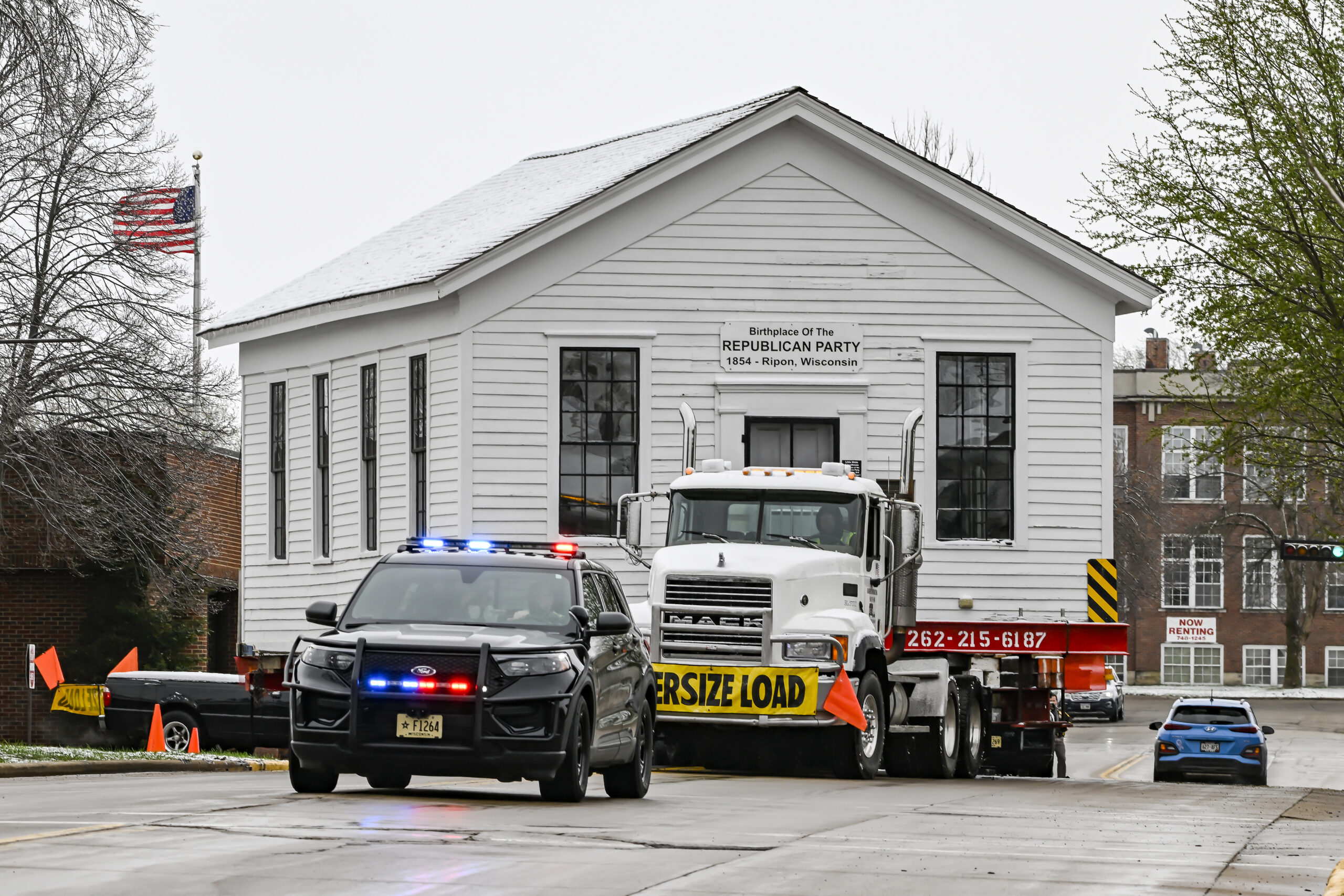
Ripon resident and Fond du Lac County GOP chair Timothy Bachleitner said he was “deeply disappointed” to learn that the schoolhouse would lose its status as a national historic landmark and wished the chamber had reconsidered the move.
“They’ve had 26 days knowing they were going to lose the status, and they didn’t put a stop to it. They didn’t say, ‘Hey, we’ll wait another week or two,’” he said. “They just went ahead and dug the foundation. They put it up on jacks, and they were going to move it without the community finding out that it was immediately being delisted.”
Kimes said she didn’t immediately notify the community that the move endangered the schoolhouse’s status as a national historic landmark because she was trying to come up with a plan for how to appeal the decision. She said she wrote to the national register earlier this month, and received a response Tuesday.
“We just hope that whether it be through an appeal, or reapplication, or even sending letters of support or a petition that we can really help them see the national significance and that this should be recognized nationally as a landmark,” Kimes said.
If the building is relisted as a national historic landmark, Bachleitner said that would alleviate a lot of the “stress and heartache” the situation has caused. But he said there’s a feeling of broken trust that will be hard to mend.
“We know they’re working hard to get it back, but, as it stands, where they put the Little White Schoolhouse is an inappropriate location to retain those statuses,” Bachleitner said. “And they made that call on behalf of the community without bringing us into it.”
The Ripon chamber plans to convert a credit union adjacent to the building’s new location into a visitor center with multimedia displays, a gift shop and bathrooms. Kimes said the new location will provide better accessibility for bus parking and allow for enhanced outreach efforts to bring tour groups to Ripon.
“We’d love to see every fourth grade class in the state of Wisconsin come visit the Little White Schoolhouse,” she said. “We’d love for visitors who are coming into town next summer for the Republican National Convention to have space to park, and we want them to shop, dine and stay in Ripon. We really believe that this will be good for our entire local economy.”
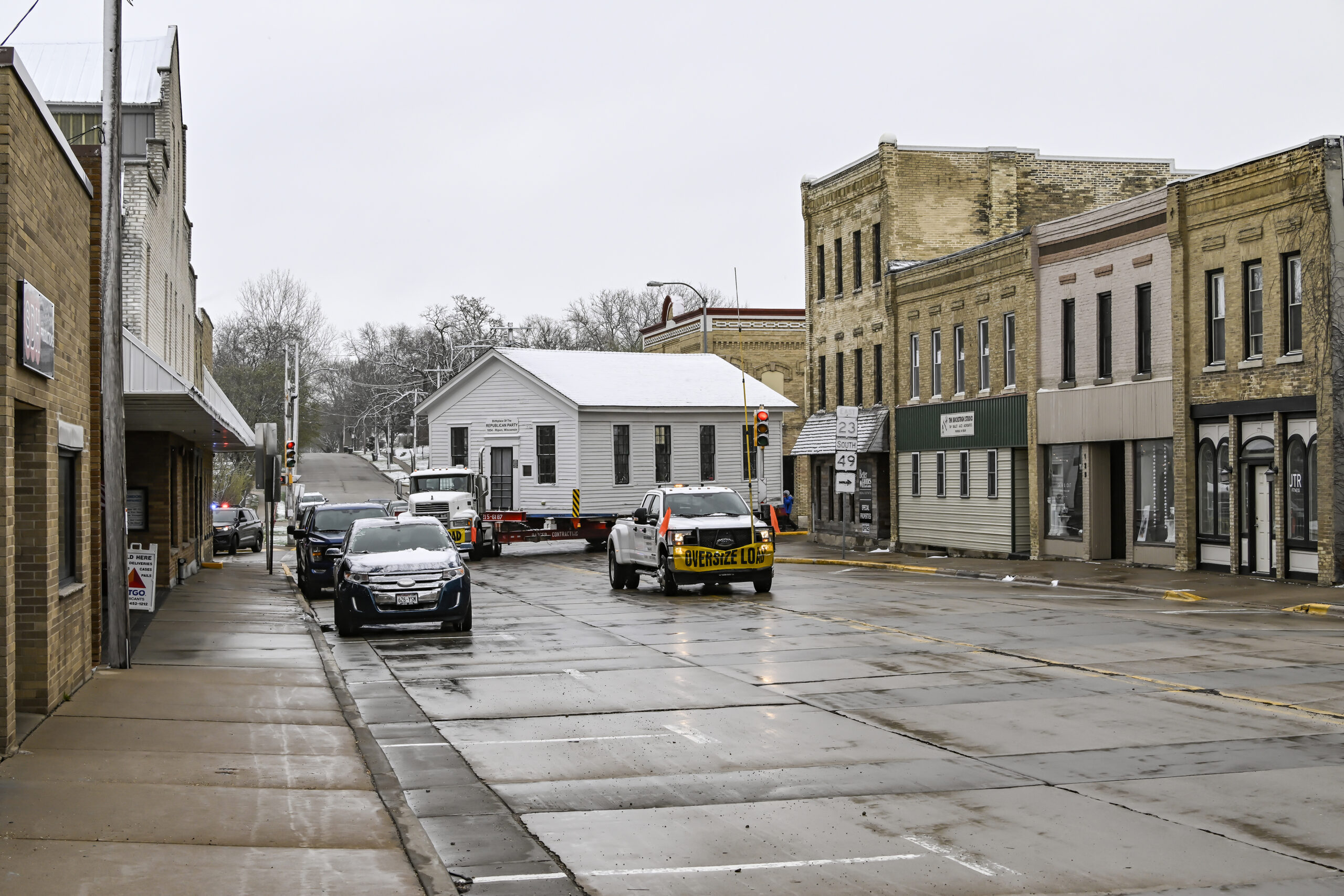
While Bachleitner said he welcomed the addition of a visitor center, he questioned how willing Republicans would be to visit the schoolhouse in 2024 given the hard feelings toward the move.
“The state convention will be used to highlight the betrayal that took place on April 17,” Bachleitner said. “It will not be used to highlight that this is a place that is going to be welcoming to them because (the chamber) utterly disregarded the warning that came from the national registry.”
He wasn’t the only local party leader in Wisconsin to express displeasure. In a press release Monday, Milwaukee County GOP chair Hilario Deleon said the move was an attempt to “erase the history” of the party’s anti-slavery roots.
“Disregarding the recommendation made by the National Historic Landmark and National Register of Historic Places is deeply disturbing, especially around the 158th anniversary of Abraham Lincoln’s assassination,” he said.
But Kimes said the Ripon Chamber of Commerce remains committed to preserving the Little White Schoolhouse’s history, and the move is an opportunity to continue carrying on that legacy.
“We actually really hope that this new location is a new opportunity to engage with many more people about the unique history that took place,” Kimes said. “We would never try to erase anything that happened there and will only continue to advocate for it to be preserved.”
Wisconsin Public Radio, © Copyright 2025, Board of Regents of the University of Wisconsin System and Wisconsin Educational Communications Board.

